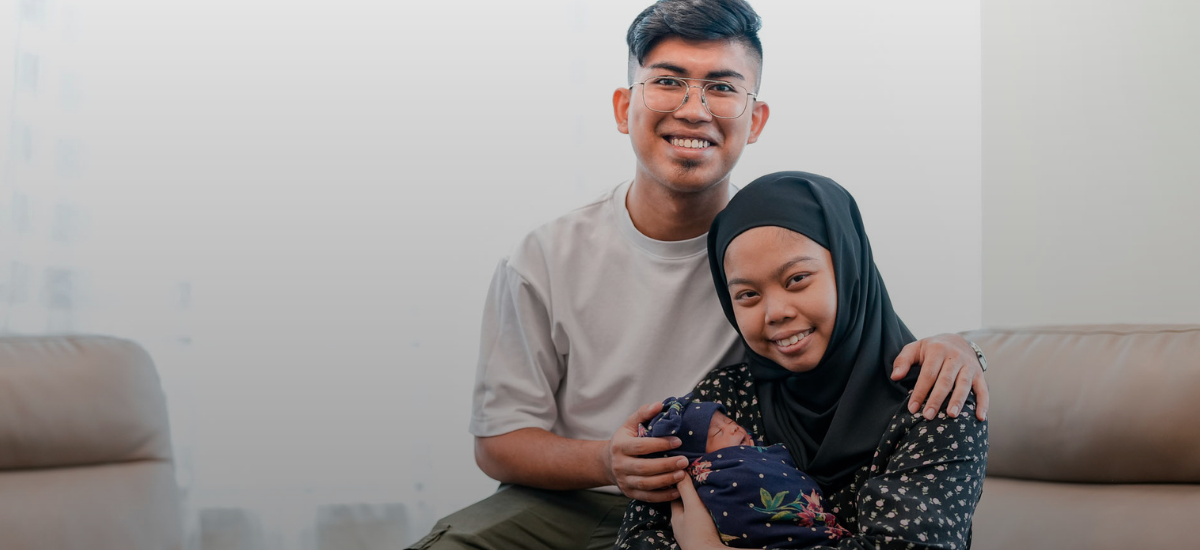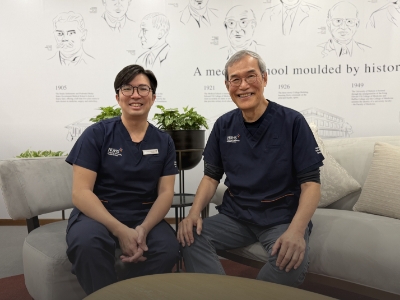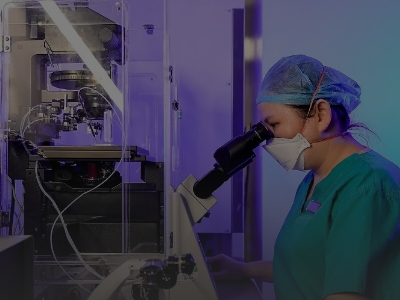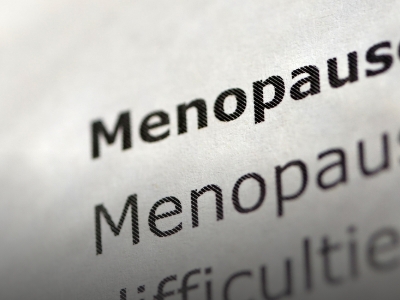Published on 19 March 2023
With the support of her family and a multidisciplinary team of NUHS specialists, Mdm Nur Fadilah – who has end-stage kidney failure – defied the odds to give birth to a healthy baby girl.
When Mdm Nur Fadilah Binte Abdul Halim and her husband, Mr Muhammad Farihin Farkhan Bin Nashir, first heard the cries of their healthy new-born daughter, they were overwhelmed by a wave of emotions so intense, it brought them both to tears.
To the couple, this birth was not just special – it was a miracle.
After all, Fadilah has end-stage kidney failure, which meant that the chances of her getting pregnant were slim. In addition, there were also a host of potential complications – for both mother and child – that could have arisen during her pregnancy. This includes the risk of severe hypertension, anaemia, premature birth (less than 32 weeks), restricted growth in the womb, and even stillbirth.
In fact, a US study of almost 48,000 women on dialysis found that only 18 of every 1,000 participants became pregnant, out of which, fewer than 30 per cent had a live born infant.
But with the committed support of a specialised care team from the National University Hospital’s (NUH) Renal Centre, as well as the High Risk Pregnancy Clinic from the NUH Department of Obstetrics and Gynaecology (O&G), Fadilah was able to brave every hurdle to bring her little miracle into the world.
“I was shocked when I found out about my pregnancy,” Fadilah recounted. “I thought I wouldn’t be able to get pregnant due to my condition.
“Of course, it was scary for my husband and I when we were informed about the risks. But we believed there was a reason why I got pregnant when I did, so we decided to continue with the pregnancy, and be strong for whatever challenges lay ahead.
“When we heard the cries of our baby for the first time, we were speechless with joy. I never expected that someone like me, who has kidney failure, would be able to give birth to a healthy child.”
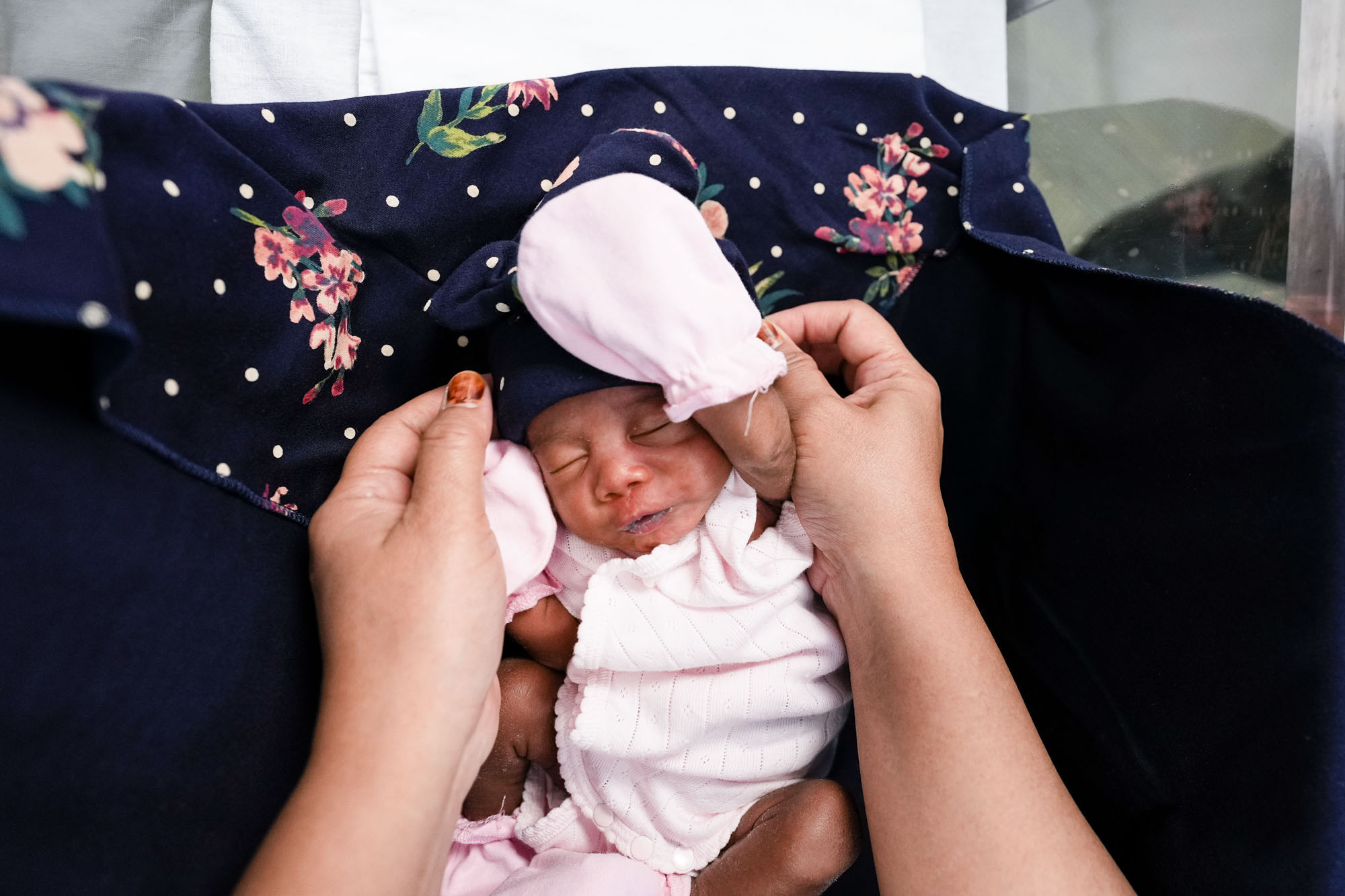
Fadilah's pregnancy, however, was not without its challenges. In addition to the normal stresses and discomforts of pregnancy, the 25-year-old also had to undergo haemodialysis six times a week, with each treatment lasting over six hours. This was a significant increase from her usual dialysis schedule of three times a week, for four hours each time.
This meant that for the span of the 35 weeks she was pregnant, Fadilah’s daily routine was largely centred around her dialysis.
Fadilah, who was diagnosed with end-stage kidney failure in 2017, said, “Having done the dialysis for so long, I thought I’d be used to it, but there are times when it's still really tiring.
“At times, my arms would just cramp up from sitting on the dialysis chair for so long. Mentally, this period was tough at times for me as well, but I kept telling myself ‘I must do this for my baby’, and that gave me the strength to keep going.”
A main concern for Fadilah during this period was her blood pressure.
Dr Sabrina Haroon Wong, Senior Consultant, Division of Nephrology, Department of Medicine, NUH, who heads the hospital’s Renal Centre, explained, “One of the greatest challenges dealing with Fadilah’s pregnancy was managing her blood pressure. At times, we had to measure her blood pressure every 15 minutes, especially if it was on the high side.
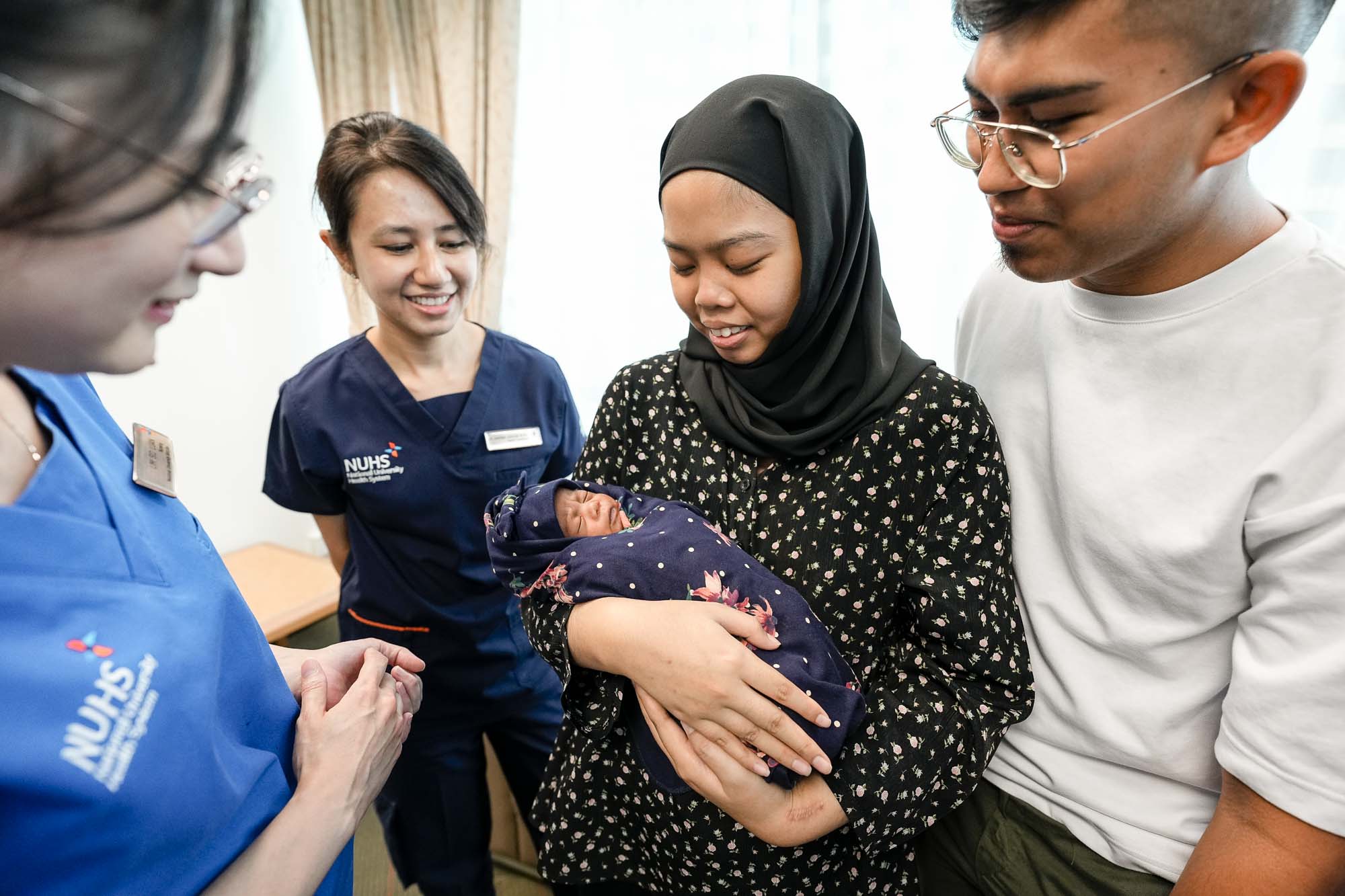
“Fluid removal and fluid volume is closely related to blood pressure in a dialysis patient, because they don’t produce any urine. So, we had to be careful in removing the right amount of fluid during the dialysis – if too little fluid is removed, Fadilah’s blood pressure would be high. But if too much fluid is removed, then there is impact to the fetal growth as it may result in low blood pressure, reducing blood supply to the placenta.
Dr Haroon Wong, who made the effort to call Fadilah every day to check on her, admitted that this pregnancy was more challenging than usual to manage. However, she insists that it was “worthwhile putting in the extra effort” to help Fadilah become a mother of a healthy baby.
Ultimately, though, it required a multidisciplinary team of healthcare specialists – including nurses, midwives, and dietitians – to ensure that Fadilah’s pregnancy was a success.
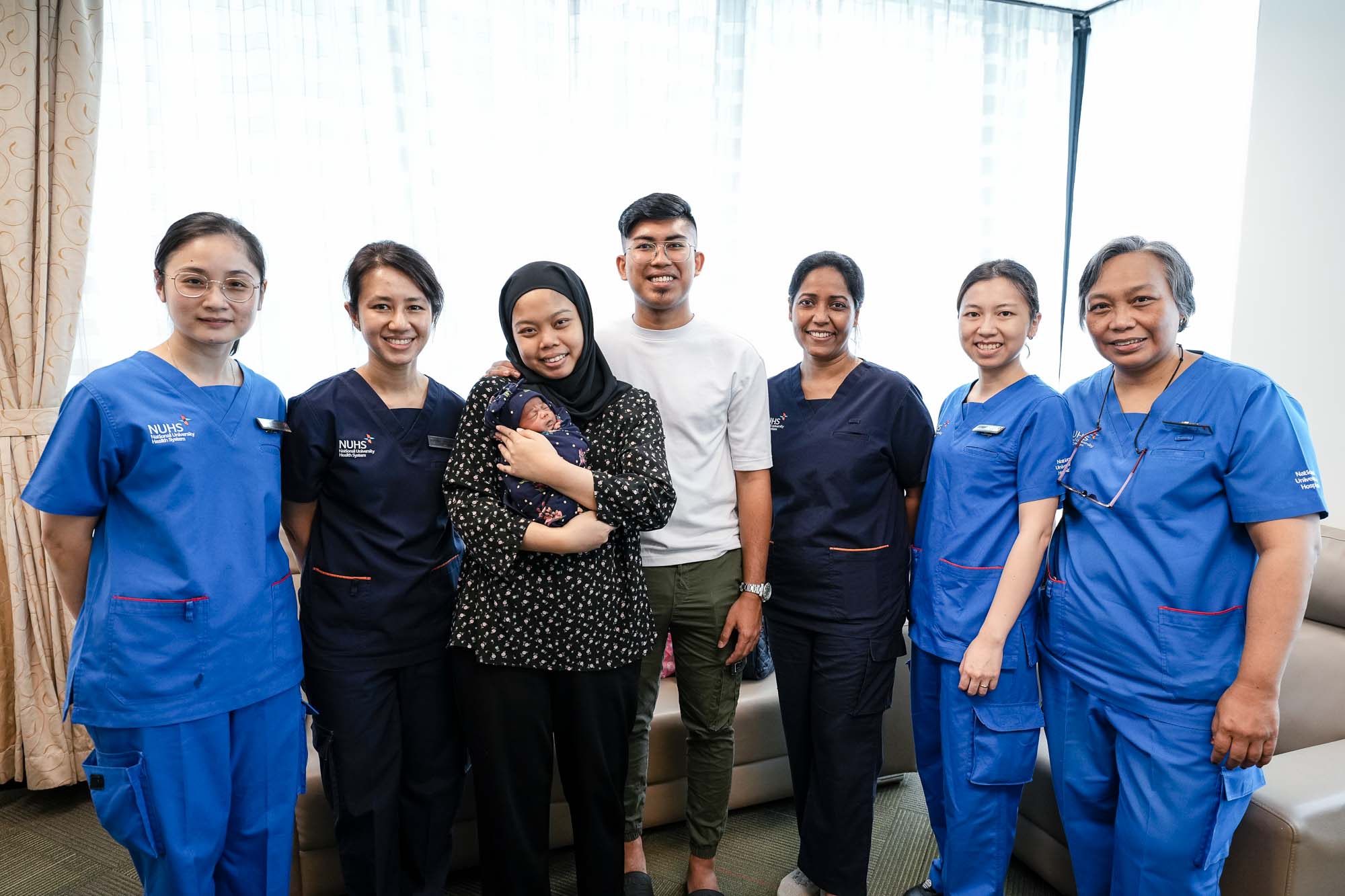
A/Prof Chan Shiao-Yng, Senior Consultant, Division of Maternal Fetal Medicine, Department of Obstetrics and Gynaecology, NUH, whose high-risk pregnancy team was also closely involved in Fadilah’s care, said, “The highest risk pregnancies often need experienced multidisciplinary care across specialties to achieve the best possible outcomes for the mother and baby.”
Dr Titus Lau, Senior Consultant, Division of Nephrology, Department of Medicine, NUH, hopes the success of Fadilah’s pregnancy will give hope to other women on dialysis that they, too, can get pregnant and have a healthy newborn, if having a baby is what she desires.
“We’re privileged in Singapore because we have the resources and a good healthcare setup to help patients like Fadilah,” said Dr Lau. “This is a story about a young woman and her determination to start a family, and how she was able to do so with the right medical and social support. It is an example to show that it can be done, and hopefully women on dialysis who want to get pregnant will be inspired by this to give it a shot.”
In consultation with Dr Sabrina Haroon Wong, Senior Consultant, Division of Nephrology, Department of Medicine, NUH, Dr Titus Lau, Senior Consultant, Division of Nephrology, Department of Medicine, NUH, A/Prof Chan Shiao-Yng, Senior Consultant, Division of Maternal Fetal Medicine, Department of Obstetrics and Gynaecology, NUH.

